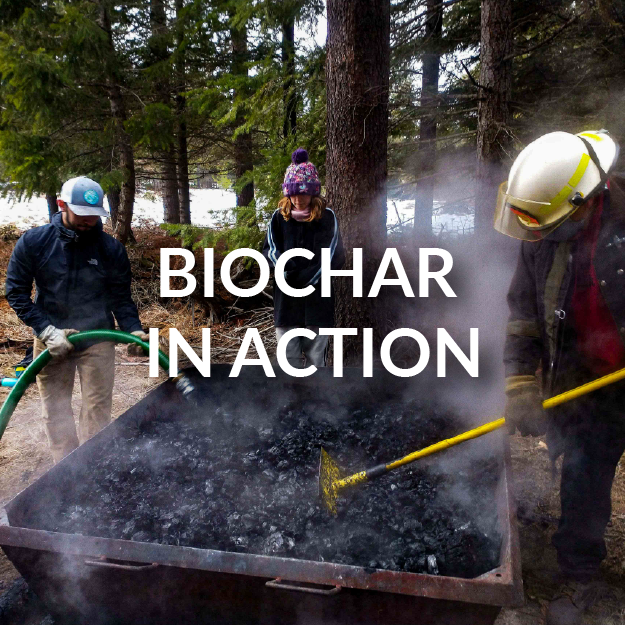Last updated on January 25th, 2024
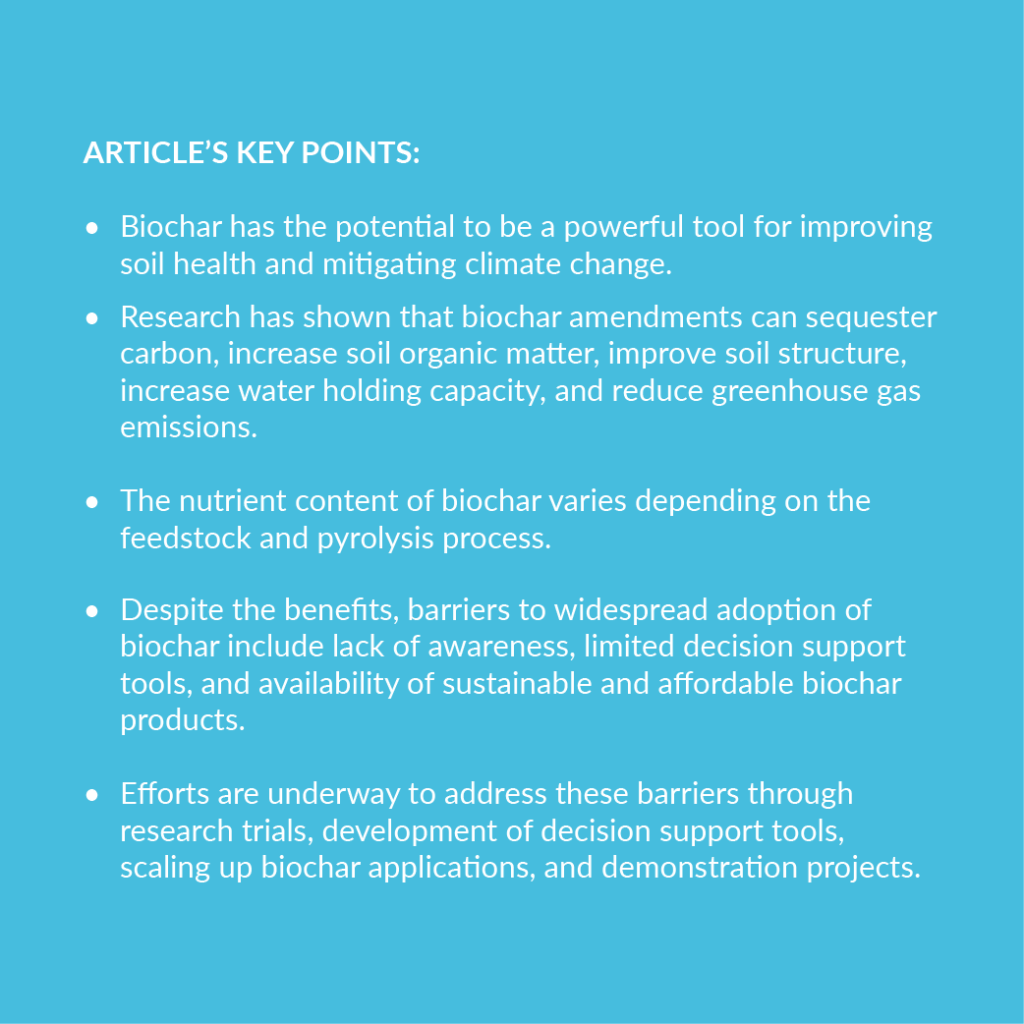

There is no silver bullet to improving soil health and mitigating climate change, but biochar has potential to be a widespread and powerful tool in the soil health and climate-smart toolbox. Managing soils with charred biomass has been practiced for centuries, originating with indigenous people who created the Terra Preta soils of the Amazon Basin. The creation of biochar from organic materials and its application to sandy, acidic, weathered tropical soils improved soil water holding capacity, pH, nutrient retention, structure, and crop yields, while also adding stable carbon.
Today, biochars are created from of organic waste feedstocks (like woody or crop residues) and can be co-composted with other organic materials, combined with fertilizers, or treated post-production to produce specific physical and chemical properties in the final biochar amendment.
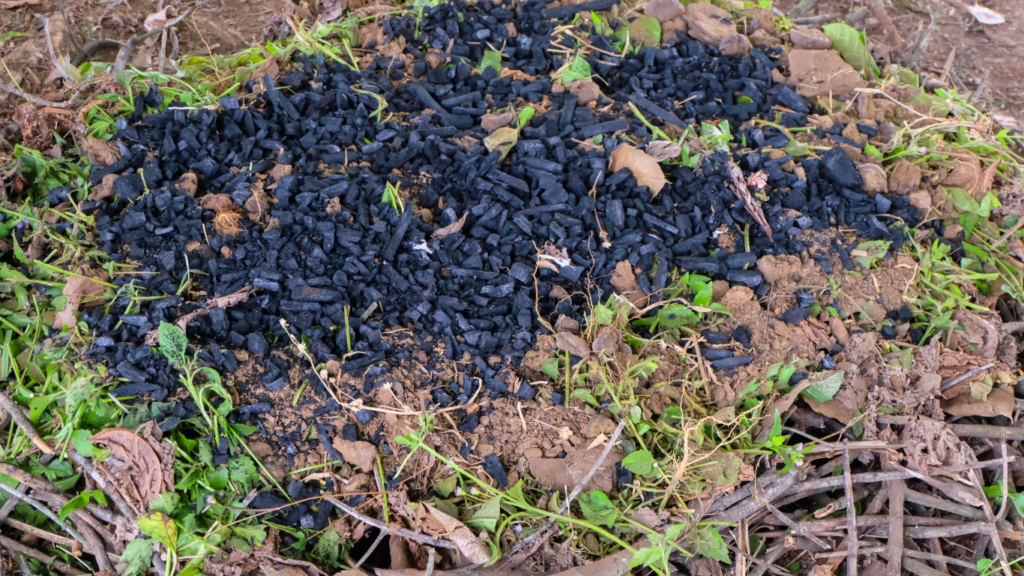
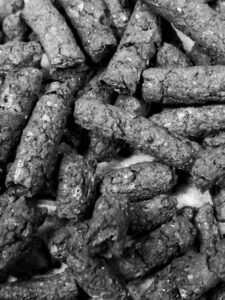
By Kristin Trippe, USDA ARS
Scientific consensus on the benefits of biochar soil amendments
Building on the traditional practice, research in the last 20 years has produced over 20,000 peer-reviewed publications investigating the benefits of diverse biochars on agricultural soils around the world. There are complex interactions among soil type, biochar type, crop, management, and weather as well as on-going efforts to expand decision support to match the right biochar with the right soil. From a convening of stakeholders and experts in March 2022 (Biochar Convening Summary), there was broad consensus on the benefits of biochar soil amendments, including:
Scroll through the eight data cards below:
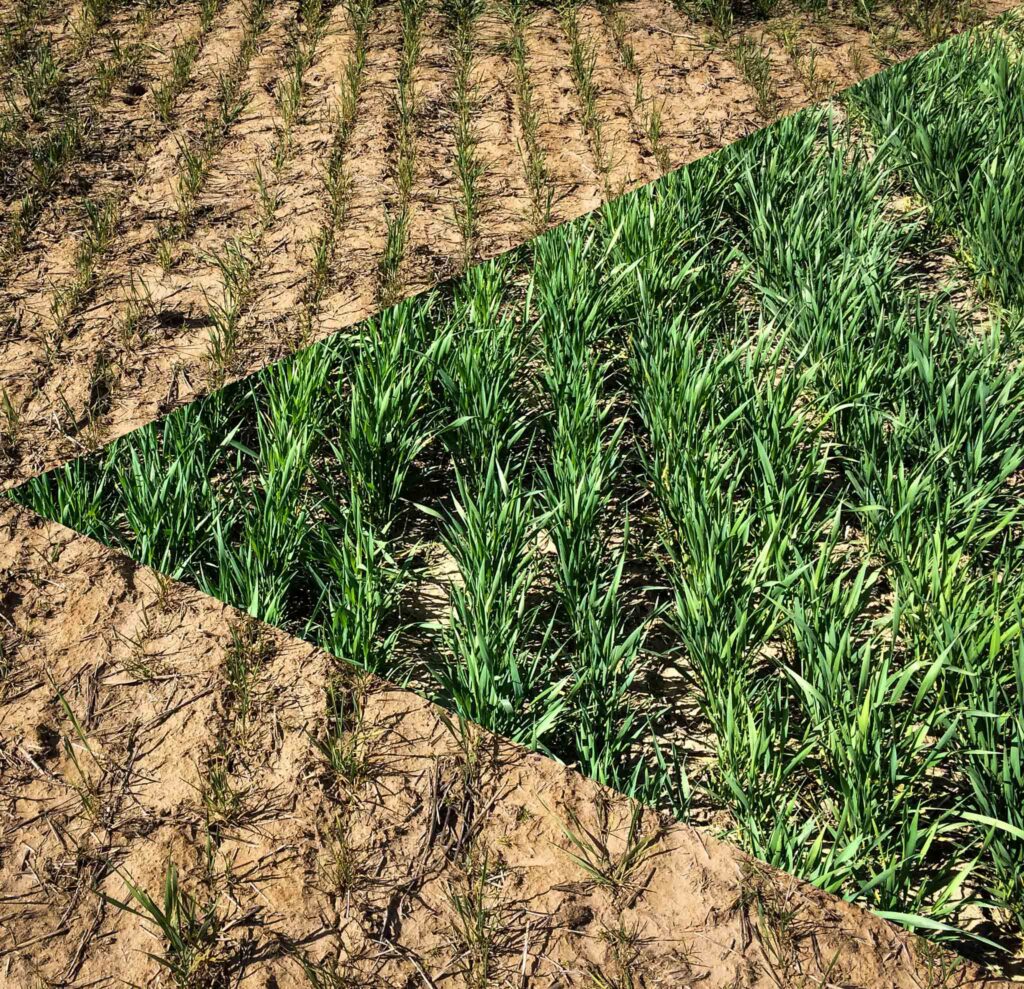
By Kristin Trippe, USDA ARS
Quantifying climate mitigation potential of biochar
Biochars have been proposed as a natural climate solution. Pyrogenic Carbon Capture and Storage (PyCCS; Schmidt et al. 2019) is the thermochemical conversion of feedstocks into pyrolyzed materials that are 100s to 1000s of times more stable. Without pyrolysis, the feedstocks would be burned or decomposed faster, releasing more CO2 into the atmosphere.
One commonly cited estimate of the global maximum potential of biochar to sequester carbon is 1.8 Gt CO2e per year (Woolf et al. 2010), potentially mitigating around 10% of global GHG emissions from agrifood systems. Complete life cycle analysis evaluates the impact of biochar amendments on GHG emissions and should include a comparison of emissions from non-pyrolyzed feedstocks and the impact of biochar production, transportation, and application in agricultural systems, which could define when the carbon drawdown period begins (Amonette et al. 2021 ). Biochars can also be by-products of a sustainable bioenergy industry, reducing net GHG emissions from the energy sector. Adaptation and resilience co-benefits of biochar should be included in any climate impact assessment.
Barriers to biochar adoption
Centuries of practice and decades of research have not translated into widespread adoption of biochar in today’s agricultural production systems. A recent paper from American Farmland Trust, National Center for Appropriate Technology, and US Biochar Initiative outlined recommendations for stakeholders and policymakers to scale up a biochar industry through coordinated research and outreach. Some barriers to implementation of biochar as an agricultural soil amendment have included:
- Lack of education and awareness of the potential for biochars to provide climate adaptation, resilience, and mitigation benefits
- Decision support tools for management of appropriate biochars on specific soils and production systems
- Availability of local, sustainable, affordable biochar products.
Breaking down barriers
American Farmland Trust (AFT) and our partners are working to reduce barriers to biochar adoption. AFT, in collaboration with policy and industry leaders, researchers, and innovative farmers, is addressing barriers to adoption of biochar as a natural climate solution through the following efforts:
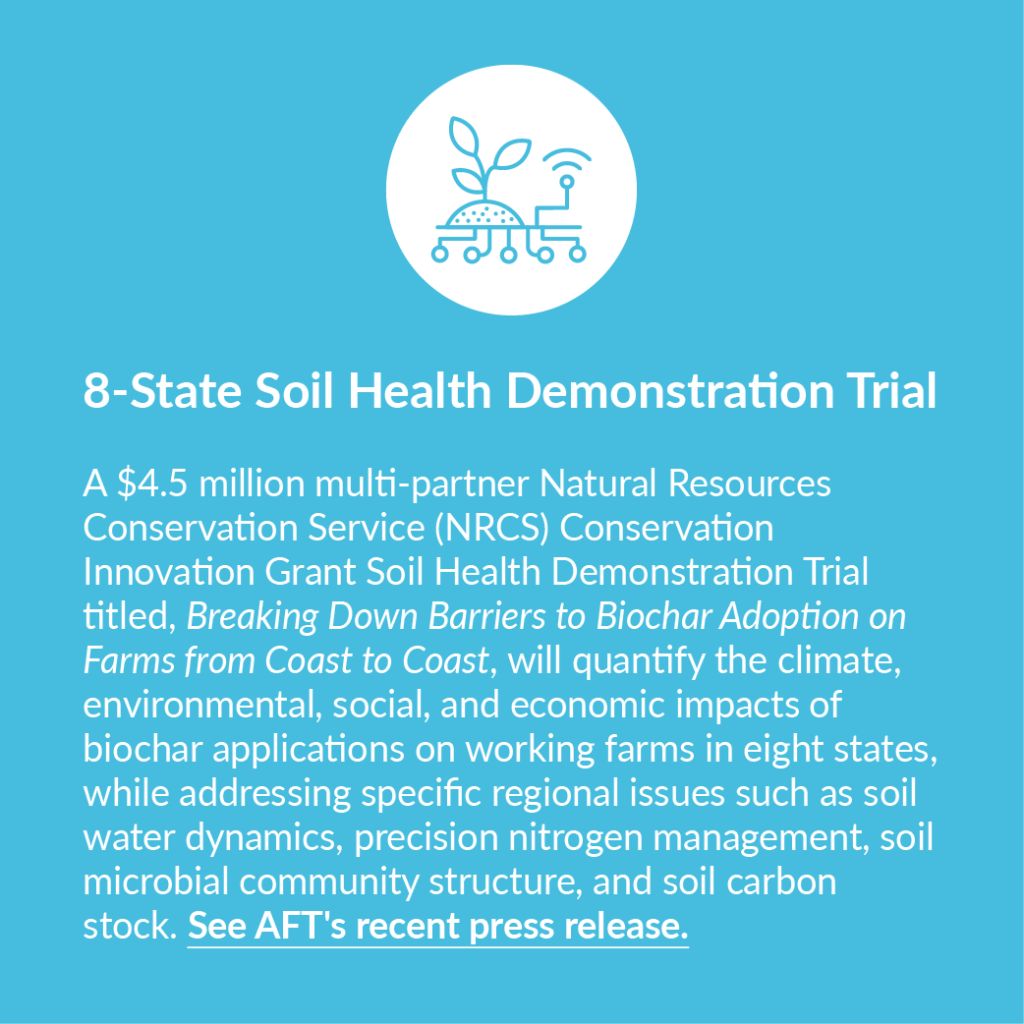
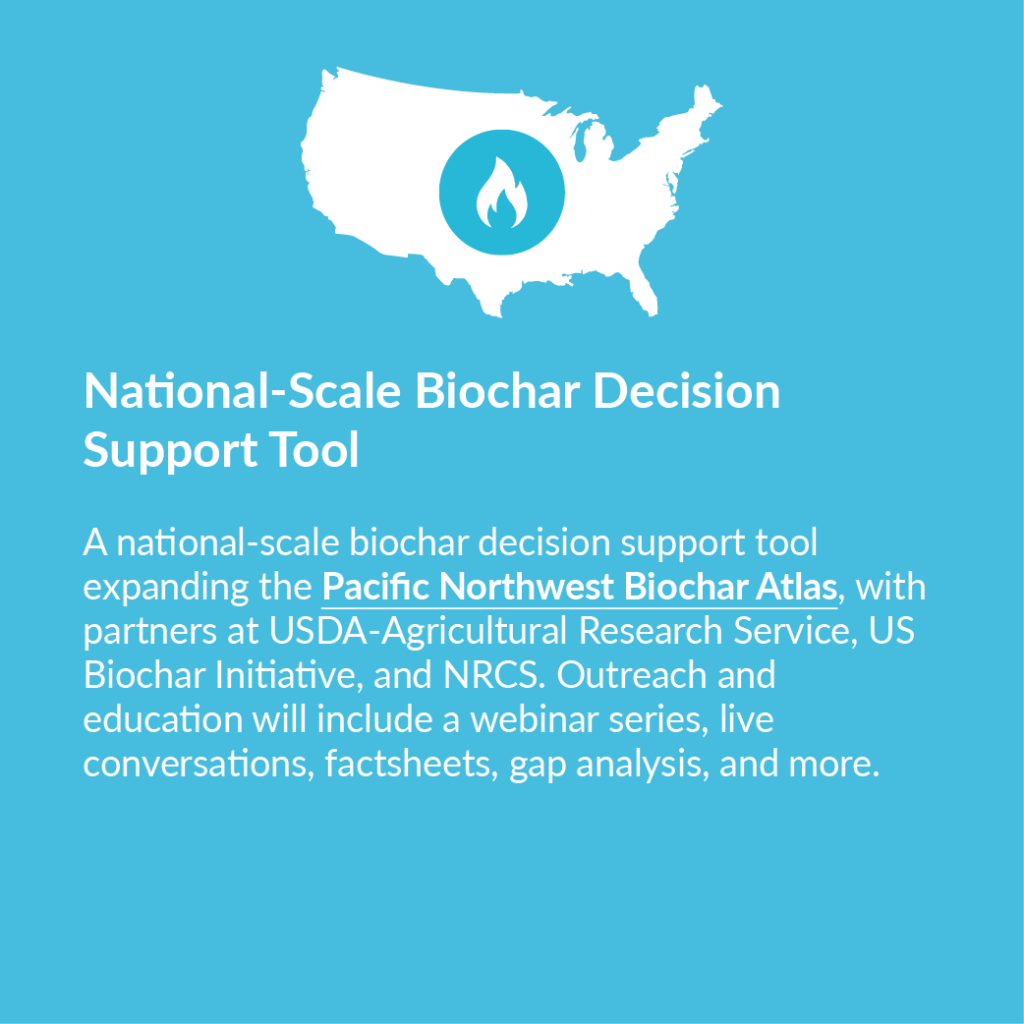
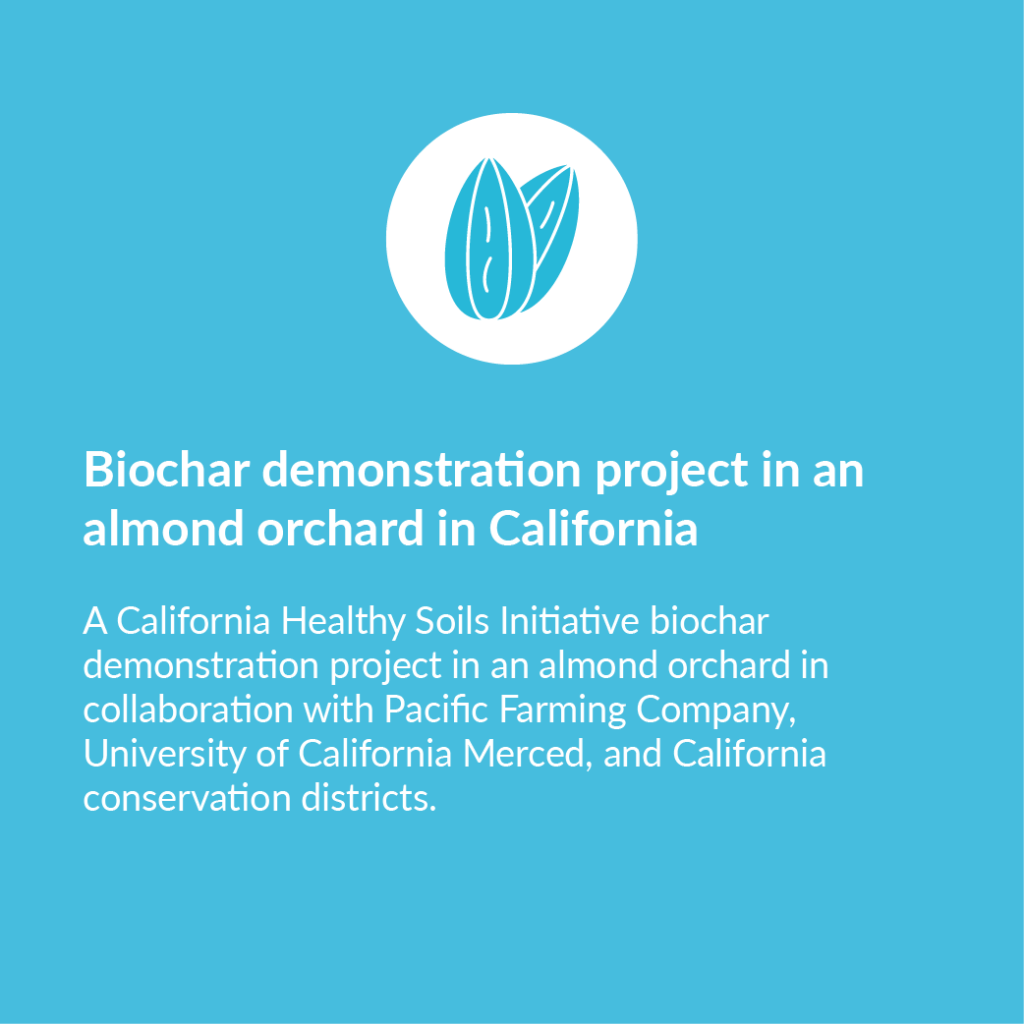
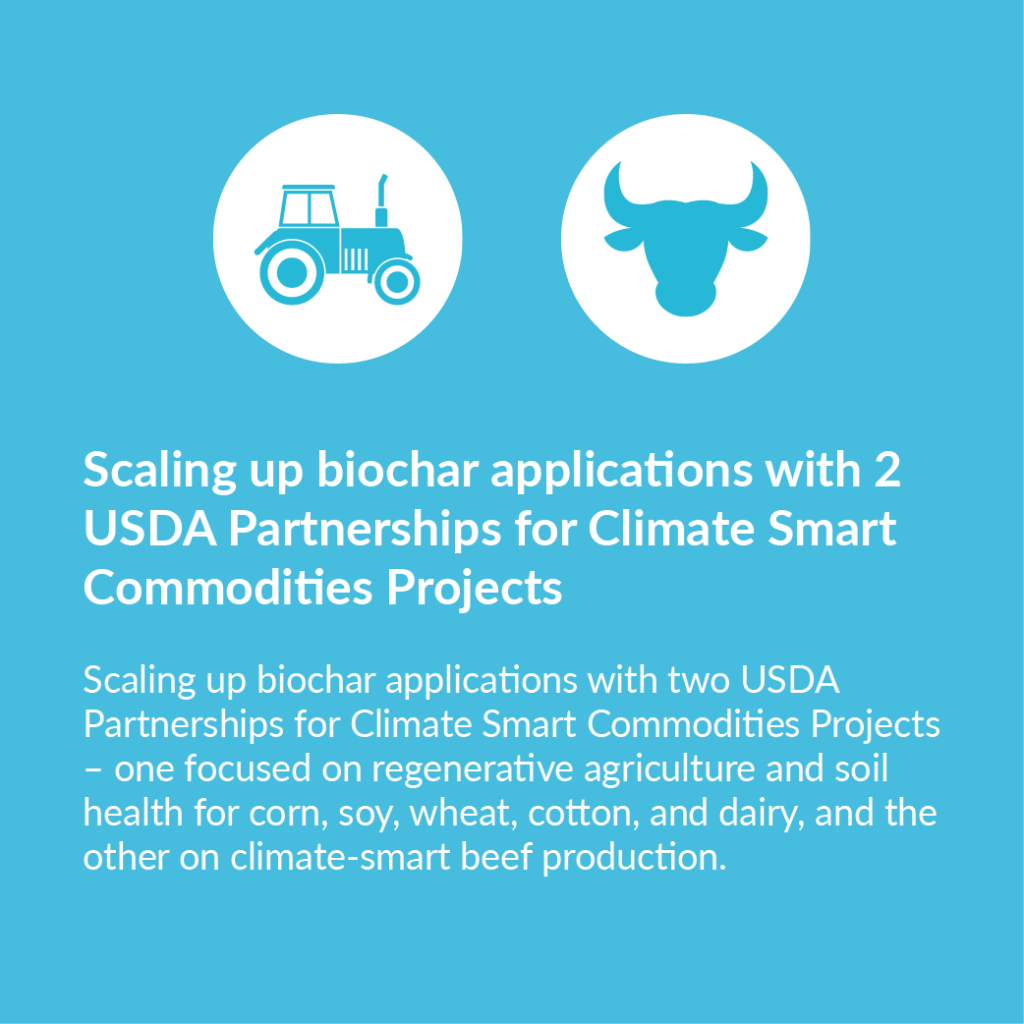
Learn more about Biochar production in the United States:
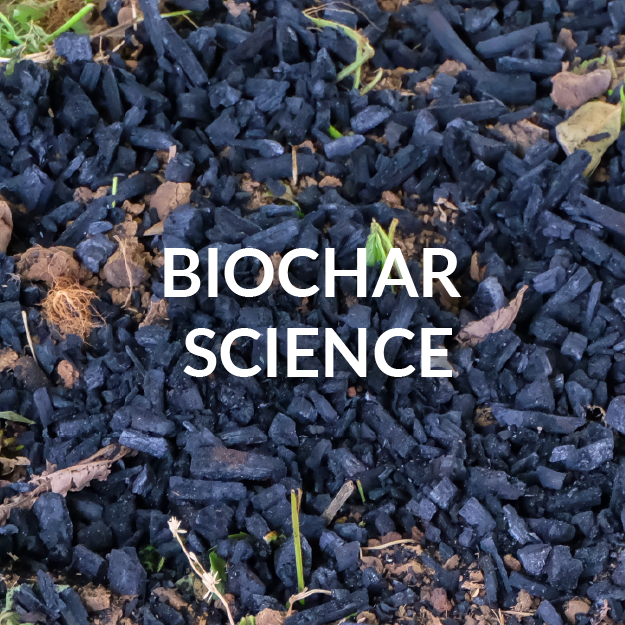
Browse the biochar section in the Science for Decision-Makers page.

Learn more about American Farmland Trust.









